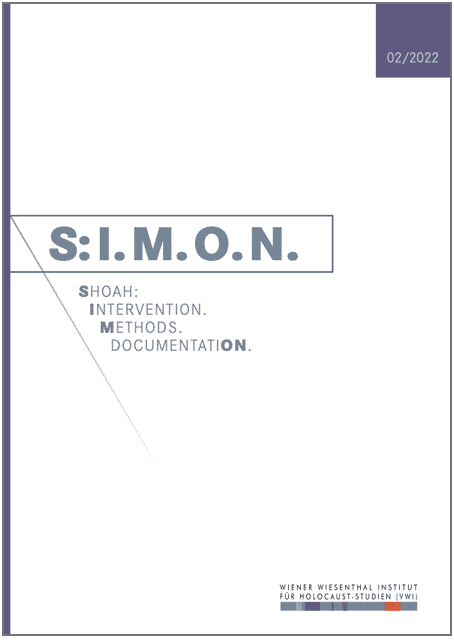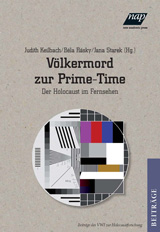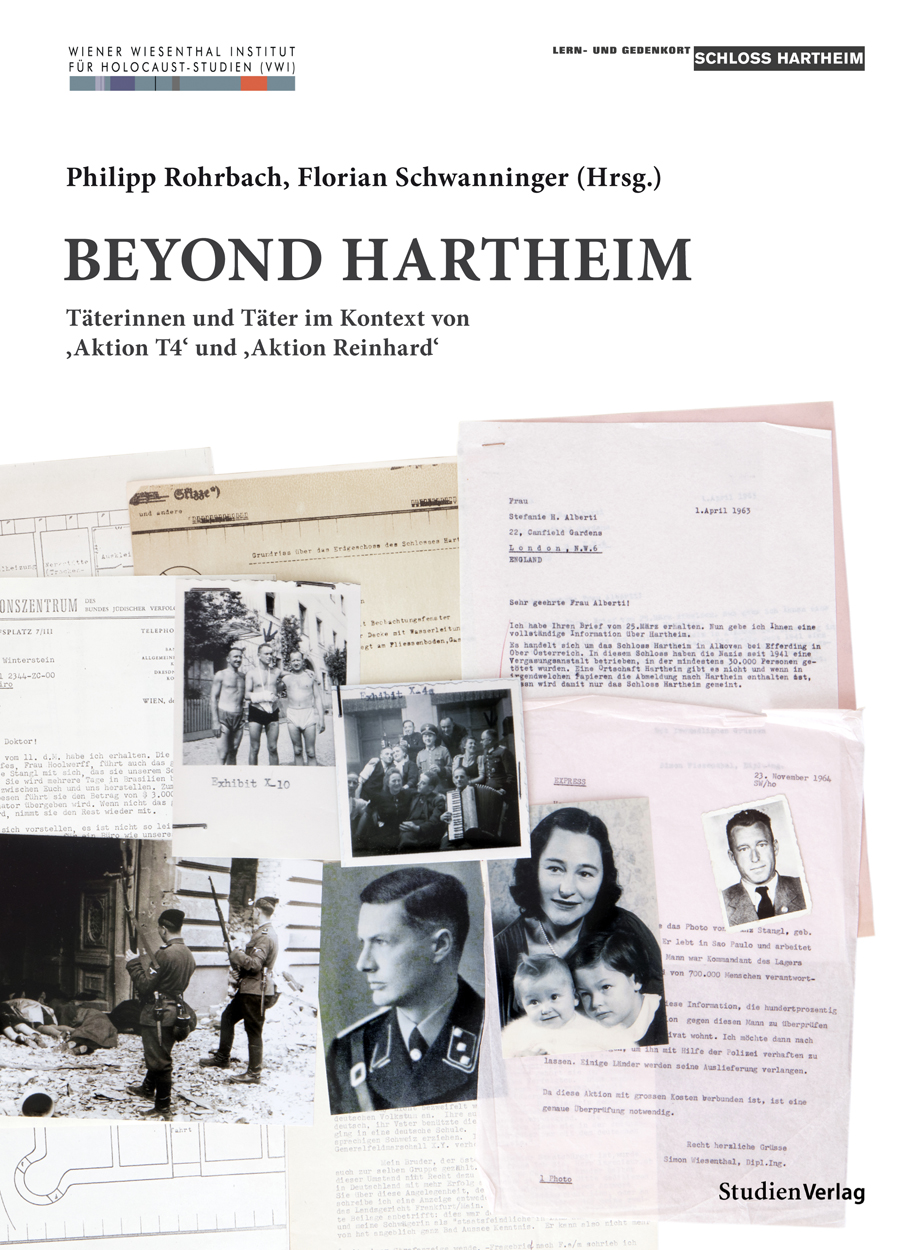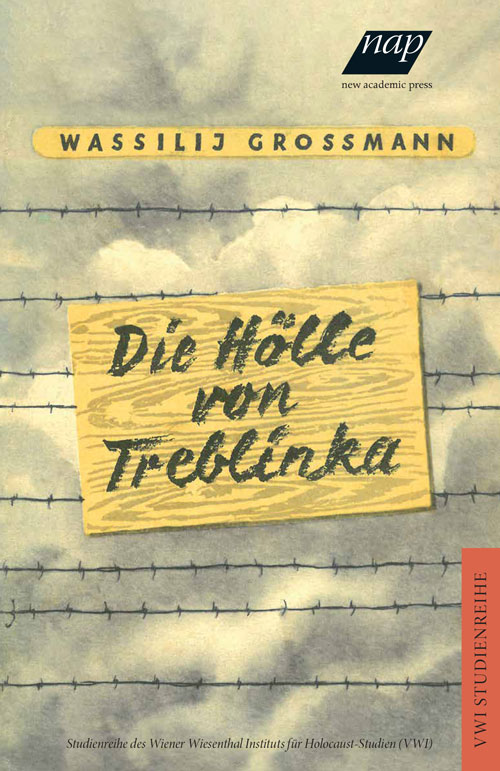News – Events – Calls
| 24. April 2024 19:00 BuchpräsentationIngeborg Bachmann, Marie Luise Kaschnitz, Hilde Domin, Nelly Sachs: Über Grenzen sprechend. Briefe. Piper/Suhrkamp, München, Berlin, Zürich 2023Ingeborg Bachmann stand mit zentralen Protagonistinnen der deutschsprachigen Literatur im Austausch, nun werden ihre Briefwechsel mit Marie Luise Kaschnitz, Hilde Domin und Nelly Sachs erstmals zugänglich gemacht. Die Briefe geben Einblick in die Lebensbedingungen, das literarische S...Weiterlesen... |
| 02. May 2024 18:30 Simon Wiesenthal LectureEdyta Gawron: Never Too Late to Remember, Never Too Late for Justice! Holocaust Research and Commemoration in Contemporary PolandIn 1994, Simon Wiesenthal received a doctorate honoris causa from the Jagiellonian University in Krakow for his lifelong quest for justice – half a century after he had been, for a short time, prisoner of the local Nazi Concentration Camp (KL) Plaszow. The 1990s were the decade when t...Weiterlesen... |
| 07. May 2024 00:00 - 04. June 2024 00:00 WorkshopDealing with Antisemitism in the Past and Present. Scientific Organisations and the State of Research in AustriaThis series of talks, presented by antisemitism experts from different organisations that research antisemitism using a variety of academic approaches, aims to provide a snapshot of historical evolutions, current events, prevalent perceptions and declared (and undeclared) attitudes. I...Weiterlesen... |
| 14. May 2024 08:45 - 16. May 2024 16:30 TagungQuantifying the Holocaust. Classifying, Counting, Modeling: What Contribution to Holocaust History? About the conference: https://quantiholocaust.sciencesconf.org/ Programme timed on the basis of 15-minute presentations + 15-minute discussions; short breaks and lunches Day 1 Tuesday, 14 May 2024Centre Malher (9 rue Malher 75004 Paris/amphi Dupuis) From 8.45 am: Welcome9.30 am...Weiterlesen... |
| 24. May 2024 18:00 InterventionLange Nacht der Forschung 20242024 öffnet das Wiener Wiesenthal Institut für Holocaust-Studien (VWI) in der Langen Nacht der Forschung wieder seine Tore und lädt Interessierte in seine Räumlichkeiten am Rabensteig 3 ein. Im Rahmen von Vorträgen, Podiumsdiskussionen und Präsentationen bieten VWI-Team und Gäste Einb...Weiterlesen... |
The Life of Simon Wiesenthal
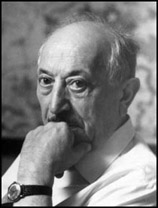 Simon Wiesenthal fought tirelessly against indifference toward the crimes of National Socialism and against the failure to call its perpetrators to account. From the day of his liberation from the Mauthausen concentration camp on, he made it his life’s task to find Nazi perpetrators and to bring them to justice. His creed in this battle was “Justice, not Revenge”, as became the title of one of his many books.
Simon Wiesenthal fought tirelessly against indifference toward the crimes of National Socialism and against the failure to call its perpetrators to account. From the day of his liberation from the Mauthausen concentration camp on, he made it his life’s task to find Nazi perpetrators and to bring them to justice. His creed in this battle was “Justice, not Revenge”, as became the title of one of his many books.
He was born on 31 December 1908 in Buchach (Ukrainian: Бучач, Polish: Buczacz), in the former Habsburg Austrian crownland of Galicia, and studied architecture at the Technical University in Prague after being denied admission to the University of Lviv (Polish: Lwów, German: Lemberg), then a part of Poland, due to the antisemitic numerus clausus laws. Having completed his studies in 1932, he returned to Galicia, married his childhood sweetheart Cyla in 1936, and established an architectural office. Lviv was annexed to the Soviet Union under the Hitler-Stalin Pact in 1939, and Wiesenthal’s office was nationalised. He was arrested in July 1941 after Nazi Germany invaded the Soviet Union. After several unsuccessful escape attempts, there followed a journey of suffering through several concentration camps. Weakened and emaciated, Simon Wiesenthal was freed from the Mauthausen concentration camp by the US military in May 1945. Cyla Wiesenthal had survived under a false name as a slave labourer in Germany. They met again in Linz, and their daughter Pauline was born one year later.
Having supported the US occupation forces in Linz in their search for former SS members, Wiesenthal founded the documentation centre “Jewish Historical Documentation Centre” (Zentrum für Jüdische Historische Dokumentation) in 1947. The centre collected witness statements and evidence on Nazi perpetrators and forwarded these to the responsible courts of law. After initial successes, the interest in the persecution of Nazi criminals waned with the onset of the Cold War, and Wiesenthal eventually had to dissolve the centre due to a lack of resources and support. Hundreds of files, tens of thousands of documents, and indexes of victims and perpetrators were then given to the memorial centre Yad Vashem in Jerusalem. In 1961, having moved to Vienna, Wiesenthal reignited the activities he had begun in Linz – first within the Jewish Community (Israelische Kultusgemeinde) in Zelinkagasse and then, following differences between the two, eventually at Rudolfsplatz. Finally, the “Documentation Centre of the Association of Jews Persecuted by the Nazi Regime” (Dokumentationszentrum des Bundes Jüdischer Verfolgter des Naziregimes) moved to Salztorgasse, on the site of the former Viennese Gestapo headquarters at the Morzinplatz.
From then on, Wiesenthal meticulously noted every available piece of information, followed up on every rumour concerning the location of the persons he was seeking, and corresponded with offices and private persons throughout the world on the possible whereabouts of Nazi criminals. It is thanks to his activities that so many could be found and brought to justice. They include among many others SS-Obersturmbannführer Adolf Eichmann, the main organiser of and thus one of those bearing central responsibility for the deportation and murder of the European Jews; the Viennese police officer Karl Silberbauer, who had arrested Anne Frank; Franz Stangl, the commandant of the Treblinka extermination camp; and Franz Murer, the “butcher of Vilnius”. Until this day, his archive shelves are laden with thousands of files that Wiesenthal had assembled on Nazi perpetrators. They include numerous files documenting Wiesenthal’s decade-long search for the concentration camp doctor Josef Mengele, as well as files and documents on the pursuit and location of Adolf Eichmann and the former Ravensbrück concentration camp guard Hermine Braunsteiner-Ryan.
In the climate of the 1960s, which was anything but open, obstacles were repeatedly placed in his way; he was often judged to be a troublemaker and malcontent, and as such he was denigrated and defamed. Time and again, Simon Wiesenthal criticised the lack of interest displayed by Austrian officials in the search for and legal prosecution of Nazi perpetrators. However, his statements and memoranda remained unheeded for a long time, while the public prosecution and police claimed to be overburdened. Investigations were delayed and there were often former Nazi party members among the investigating officers. Although he often faced opposition in public, Wiesenthal did not tire of ensuring that the genocide of Jews, Roma, and Sinti as well as other groups persecuted by the Nazis would not fail to be avenged: Many of the investigations against perpetrators, some of them prominent, would not have come to pass without his resolute engagement. His physical safety was also continuously under threat, and in 1982 he only narrowly escaped a bomb attack.
In 1975, there erupted a bitter, year-long conflict between Wiesenthal and Austrian Chancellor Bruno Kreisky. One of the conflict’s initial issues was the SS past of Friedrich Peter, the leader of the Austrian Freedom Party (FPÖ). During a press conference, Kreisky accused Wiesenthal of having collaborated with the Gestapo, without being able to produce any evidence for his claims. Although Wiesenthal retracted the suit against Kreisky, and the chancellor withdrew his accusations, the conflict smouldered on. Kreisky was found guilty of libel in 1990.
In 1986, a public dispute – the “Waldheim affair” – arose involving the World Jewish Congress (WJC) concerning the Austrian presidential candidate Kurt Waldheim’s membership in the SA and the false claims he had made regarding his activities in Greece during the Second World War. Wiesenthal, who valued Waldheim personally and politically and had initially and unquestioningly accepted Waldheim’s professed biography, adopted a differentiated, partly defensive stance toward Waldheim and demanded an international historical commission be installed. Such a commission was appointed by the Austrian federal government, which concluded that Waldheim was not personally guilty of war crimes, but was to be charged with having known of the deportation of Greek Jews and with concealing and whitewashing his wartime activities.
The Israeli historian Tom Segev published an extensive and sensitive biography of Simon Wiesenthal in 2010.
Simon Wiesenthal died in Vienna at the age of 96 on 20 September 2005, two years after the death of his wife. He was buried in Herzliya Pituah in Israel on 23 September 2005.
The Vienna Wiesenthal Institute for Holocaust Studies
The Vienna Wiesenthal Institute for Holocaust Studies (VWI) is active in three central fields: research, documentation, and education of all issues related to antisemitism, racism, and the Holocaust, including its origins and aftermath.
The VWI’s research activities centre on the fellowship program and on scholarly projects. Fellows guarantee flexibility and an open relationship to the free research scene. The on-going intensive exchange between early career as well as established researchers ensures permanent academic innovation and safeguards the integration of new questions and methods in the on-going and emerging research and events programme of the institute.
The main collections held at the VWI comprise the Holocaust-related parts of the archive of the Jewish Community of Vienna (Israelitische Kultusgemeinde Wien, IKG), which are on loan to the institute at its new location and are currently being digitalised, as well as Simon Wiesenthal’s extensive estate. Other smaller relevant archives, collections, and estates will gradually be added. The VWI’s research activities in the form of projects and publications are intended to build on these collections owned by or accessible via the institute.
The third pillar of the VWI’s activities reflects the institute’s dedication to the central idea of the European Enlightenment: the education of responsible adults based on the transfer of knowledge. Scholarly lectures, conferences, and events are designed to encourage the broad public into confronting antisemitism, racism, the Holocaust, and genocide via the presentation of important research results on these subjects. However, it is also important to develop and test new, even experimental concepts: The VWI also stages exhibitions, initiates interventions in the public sphere, and is developing new internet projects. Beyond this, new teaching methods and teaching aids for schools will be put up for discussion in the context of academic events.






